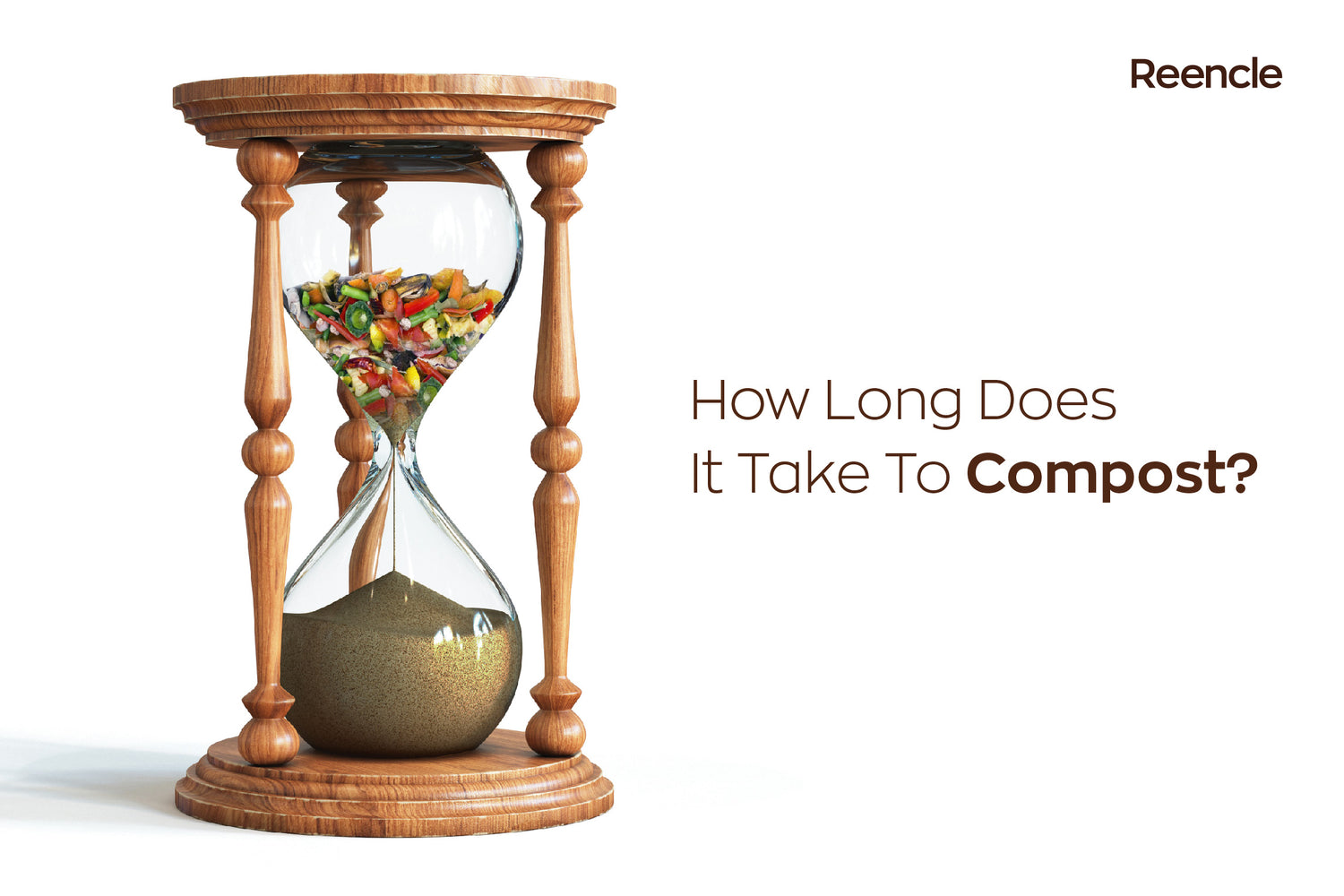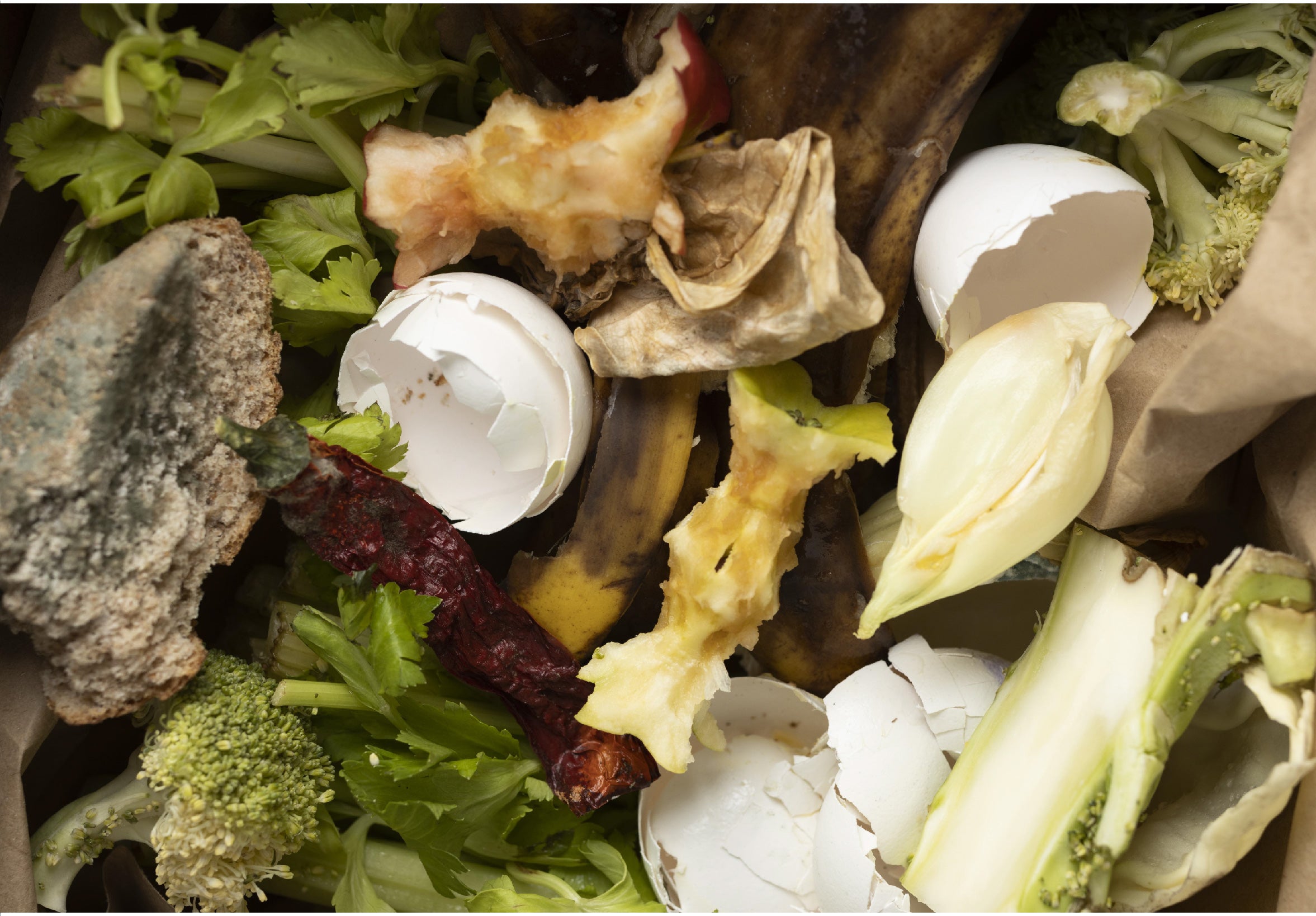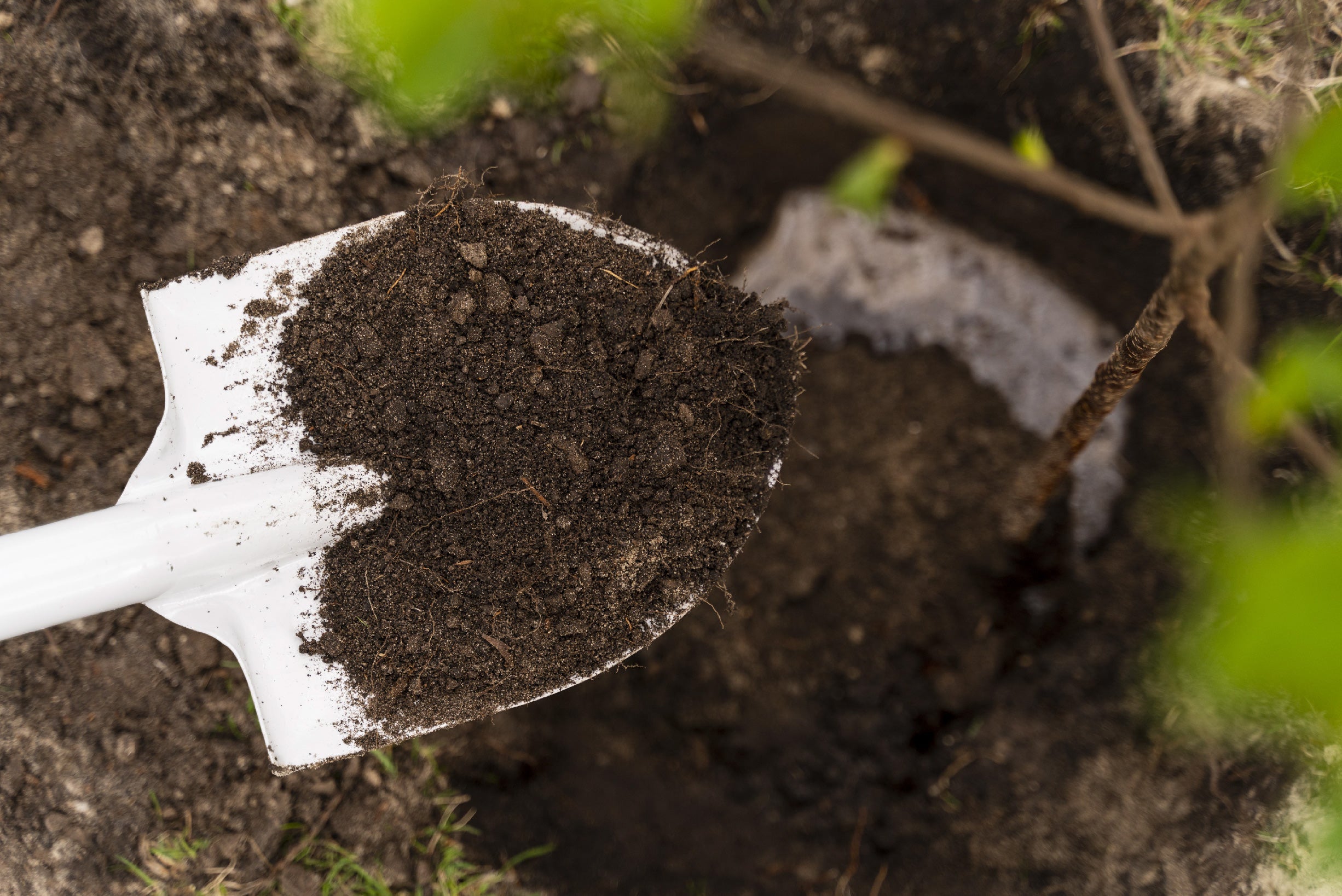
How Long Does It Take To Compost? This query often puzzles gardeners and green-thumbed warriors as they seek to close the loop in their sustainability efforts. Composting, the eco-superhero of waste management, doesn't have a one-size-fits-all timer.
The period it takes your banana peels and fallen leaves to transform into nutrient-rich soil enhancers can be quite the garden mystery. But do not worry, with a sprinkle of science and a dash of Reencle's tech-driven magic, we're about to unravel this earthy enigma and kick the guesswork out of your green routine.

How Long Does It Take To Compost? This query often puzzles gardeners and green-thumbed warriors as they seek to close the loop in their sustainability efforts. Composting, the eco-superhero of waste management, doesn't have a one-size-fits-all timer. The period it takes your banana peels and fallen leaves to transform into nutrient-rich soil enhancers can be quite the garden mystery. But do not worry, with a sprinkle of science and a dash of Reencle's tech-driven magic, we're about to unravel this earthy enigma and kick the guesswork out of your green routine.
1. Introduction
● What is Composting: A Brief Overview
Composting is a remarkably efficient process of recycling organic waste that transforms kitchen scraps and yard debris into nutrient-rich soil. This natural process not only reduces the amount of waste sent to landfills but also curtails methane emissions, a potent greenhouse gas produced when organic matter decomposes anaerobically in landfills.
By composting, we foster a circular economy that feeds the very earth that sustains us, enhancing soil health, promoting biodiversity, and mitigating climate change. This environmentally conscious practice is a testament to our ability to live in harmony with nature, turning what would be waste into a valuable resource.
● Reencle: A Leading Solution for Efficient Composting
With Reencle's cutting-edge composting solution, the query how long does it take to compost? takes on a new perspective. Traditional methods can take months, but Reencle's system is designed to reduce that timeframe significantly, turning kitchen scraps into high-quality compost in a fraction of the time, flaunting the prowess of technology in speeding up nature's cycle.
With Reencle, sustainability becomes an accessible goal for households and businesses alike, promoting environmentally responsible practices without sacrificing convenience.
This cutting-edge system not only streamlines composting but also contributes to reducing landfill waste, thereby supporting the health of our planet.
2. Understanding the Composting Process
● How composting works
Composting is a natural process that transforms organic waste into valuable fertilizer for plants. At the heart of this eco-friendly practice is the decomposition carried out by bacteria, fungi, and other organisms, which break down kitchen scraps, yard waste, and other biodegradable materials.
As these microorganisms consume the organic matter, they generate heat, which further accelerates the decomposition process. The resulting compost is rich in nutrients, acting as a natural, potent soil conditioner that enhances soil structure, promotes moisture retention, and nurtures plant growth.
● Different stages of composting
Composting is a natural process that transforms organic waste into a rich soil amendment through various stages.
1. The initial stage is the "Green" phase, where nitrogen-rich materials like fruit scraps and vegetable peels are added to the compost pile, igniting the breakdown by microorganisms.
2. Following this is the "Brown" phase, which introduces carbon-rich items such as leaves, twigs, and cardboard to balance the nutrient composition.
As the pile decomposes, it heats up, entering the "Thermophilic" stage, where high temperatures accelerate the decomposition and kill off pathogens.
3. In the final "Curing" stage, the compost matures and cools down, making it ready to enrich the soil with its beneficial nutrients.
3. How Long Does It Take To Compost?
What is the general timeframe to reach full compostability?
🌿 An electric countertop composter transforms kitchen scraps into soil in just 2 to 24 hours, making it the quickest route.
🌿For those preferring indoor methods, patience is key, as it takes anywhere from two months to over a year to see results.
🌿Meanwhile, composting outside is variable; you can expect rich, garden-ready compost in as little as
a month, or it may take up to a year to fully mature.
Factors Affecting Composting Time
The breakdown rates of compostable materials significantly influence the overall composting time, presenting an interesting angle for both novice and experienced composters.
● Types of compostable materials and their breakdown rates
The breakdown rates of compostable materials significantly influence the overall composting time, presenting an interesting angle for both novice and experienced composters.
🌿 Organic waste varies greatly in how swiftly it decomposes; for instance, vegetable scraps and coffee grounds are quick to break down due to their softer consistency and richness in nitrogen.
🌿 In contrast, items like branches and wood chips take considerably longer because of their dense structure and high carbon content.
Being mindful of these rates allows composters to manage their compost piles more efficiently, balancing materials to achieve an ideal rate of decomposition and a healthy compost mix.
● The role of the environment: temperature, moisture, and aeration
The environmental conditions of your compost setup significantly dictate the pace at which organic materials decompose.
In essence, temperature, moisture, and aeration act as a trio of composting accelerators.
🌿 A warm environment, generally between 55-65 degrees Fahrenheit, is ideal as it promotes microbial activity without overheating the organisms at work.
🌿 Moisture is the lifeblood of the composting process, and the material should feel like a well-wrung sponge – damp but not saturated.
🌿 Lastly, sufficient aeration is crucial, establishing an oxygen-rich habitat for aerobic bacteria to thrive and break down waste efficiently.
In short, these factors can transform your compost pile into a fertile amendment for your garden.
● Quantity of compost material
The amount of compost material you start with plays a critical role in determining the overall time frame for decomposition. Smaller quantities typically break down more quickly, as they can reach the high temperatures needed for efficient composting more readily.
Conversely, larger volumes may retain moisture better and support a wider array of decomposing organisms, but they also generally require more time to transform into nutrient-rich compost._populationorganisms
Maintain a balanced pile size and turn it regularly to expedite the process while ensuring all materials decompose evenly.
4. The Reencle Difference: Speed and Efficiency in Composting
● How Reencle's technology optimizes the composting process
Reencle fundamentally transforms the composting landscape by bringing unprecedented speed to an otherwise time-demanding process.
🌿 Traditional composting methods can take anywhere from several months to over a year to turn organic waste into nutrient-rich soil.
🌿 The Reencle composter, on the other hand, harnesses the power of sophisticated microorganisms that accelerate the decomposition process, delivering compost in a mere of maximum 24 hours.
This swift conversion not only encourages more frequent use among eco-conscious individuals but also presents a practical solution for urban dwellers with limited space who wish to contribute to a sustainable future.
5. Tips for Faster Composting
● Best practices for efficient composting with Reencle
To accelerate the composting process with Reencle, adhere to these best practices:
6. Identifying When Your Compost is Garden-Ready
Determining when your compost has transitioned from raw materials to nutrient-rich soil is crucial for its effective use in the garden. Here's what to look for: Mature compost possesses a unique look and feel, and depending on how you've processed it, the timeline can vary. Some methods hasten the process to roughly a month, while others may stretch to over a year.
Cavdle WasteCycler Electric Kitchen Waste Composter
Keep an eye out for these key indicators:
· Texture: Mature compost will have a soft, crumbly constitution.
· Aroma: Forget the foul odors of decomposing organic matter; a rich, earthy scent signifies that your compost is garden-ready.
· Thermal Shift: As compost matures, the heat it emits will decrease. Monitoring temperature fluctuations can assist in gauging readiness.
· Hue: Rich, chocolatey brown hues indicate prime compost ready to nourish your plants.
7. Conclusion
Imagine transforming your kitchen scraps into nutrient-rich soil before your next meal is even cooked—that's the Reencle promise.
How Long Does It Take To Compost? With traditional methods, composting is a waiting game of several months to over a year. But Reencle redefines this timeline, revolutionizing the way we recycle our food waste with compost-ready in just 24 hours, making sustainable living not just possible, but practicable for everyone.
Embrace the benefits of this cutting-edge technology and join the urban composting movement. Choose between a greener, cleaner planet right from your kitchen by choosing Reencle—the future of home composting is here, and it's lightning-fast.





Leave a comment
This site is protected by hCaptcha and the hCaptcha Privacy Policy and Terms of Service apply.